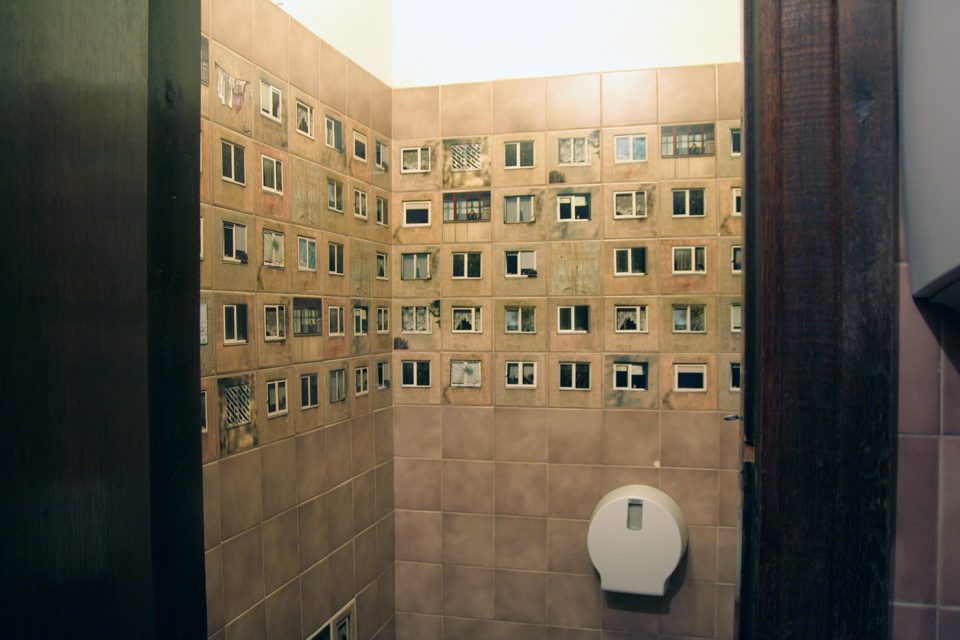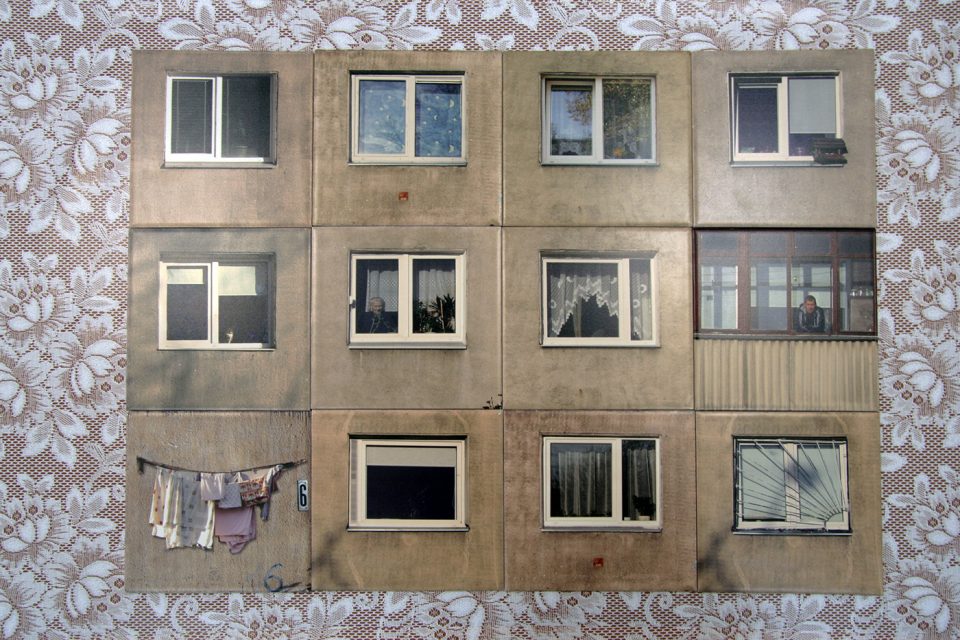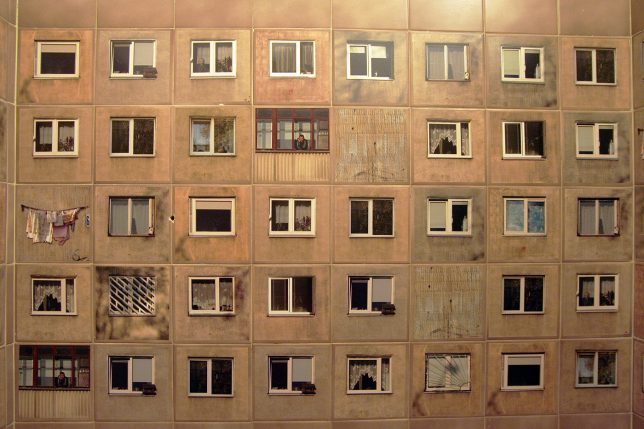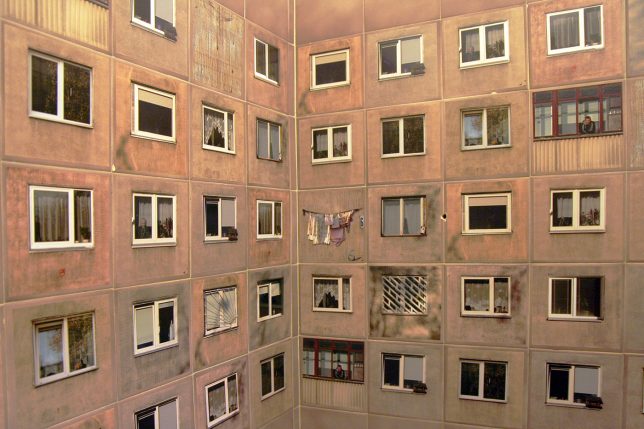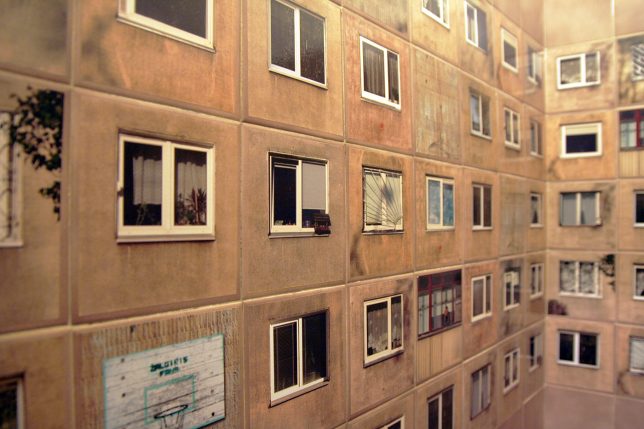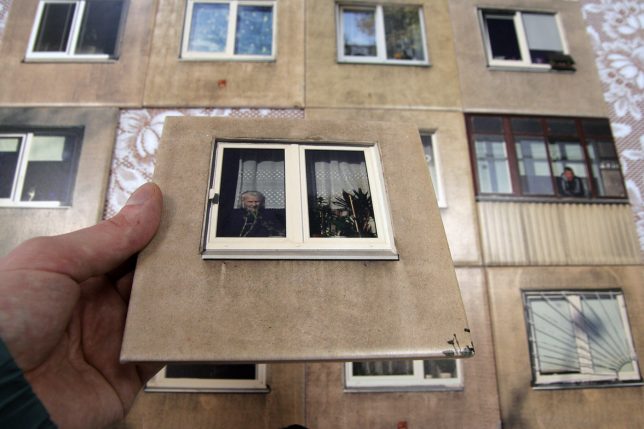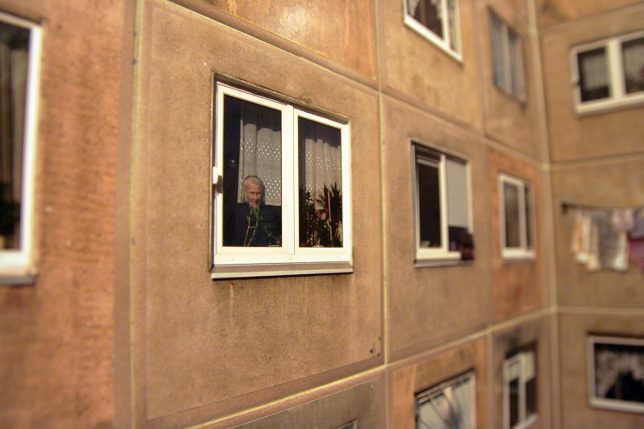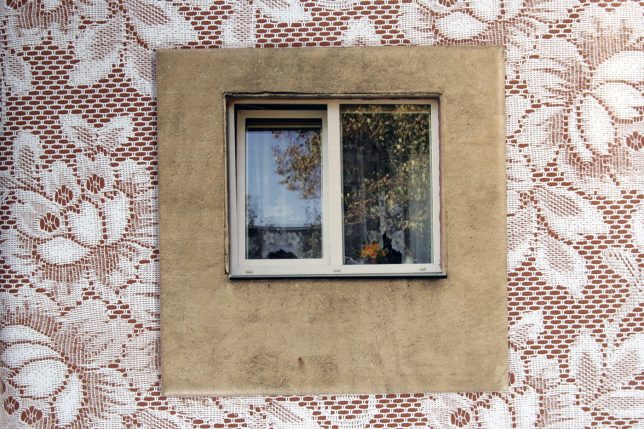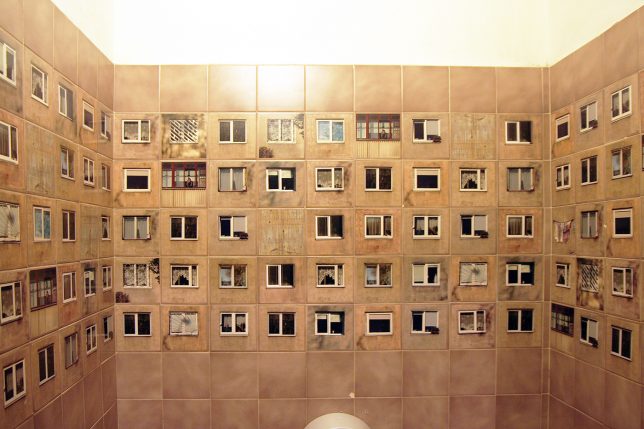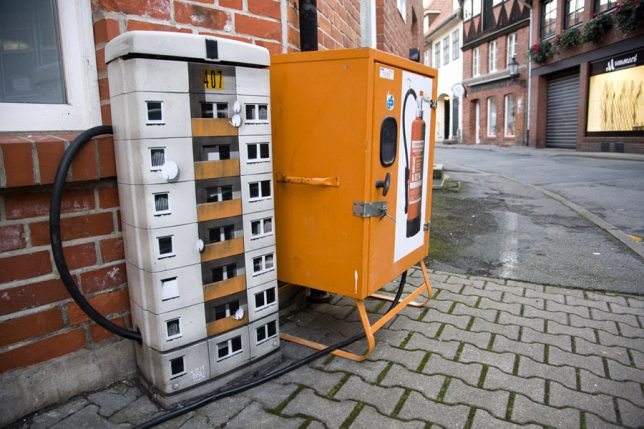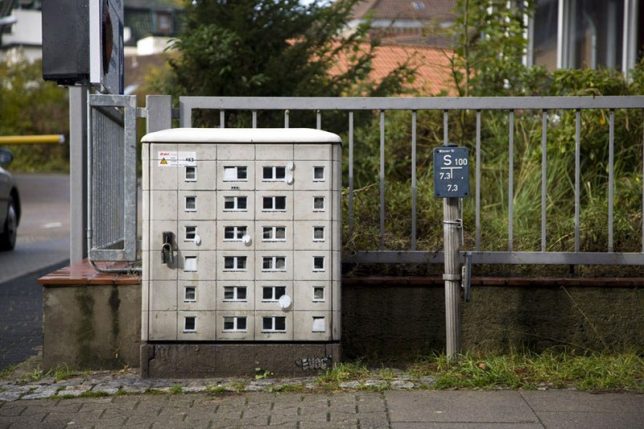Stepping into a lockable bathroom stall, one expects a degree of privacy, but for those with shy bladders, this interior tiling strategy may prove problematic.
Designed by Gyva Grafika in Lithuania, the tyles tap into a well-known aesthetic of conventional mass-housing modules — graying buildings where individual differences emerge in the details of habitation rather than the architecture.
Closed shutters, broken glass, hanging clothes and bemused onlookers populate the walls of the stall, while decorative touches like houseplants and custom curtains add some flair and color to the otherwise brownish background.
The custom tiles wrap the space, starting a few feet up (around waist high) and continuing for five tile lengths to around eye level — together, they form a kind of inverted five-story facade, wrapping but facing inward.
The source is not just imaginary, either — these actual photos were taken in the same neighborhood as the project, so locals might even see themselves staring back at them.
The work conjures to mind projects by artists like Evol, whose miniature streetscapes bare a remarkable resemblance — little villages of mass-produced housing units set into unexpected contexts.
